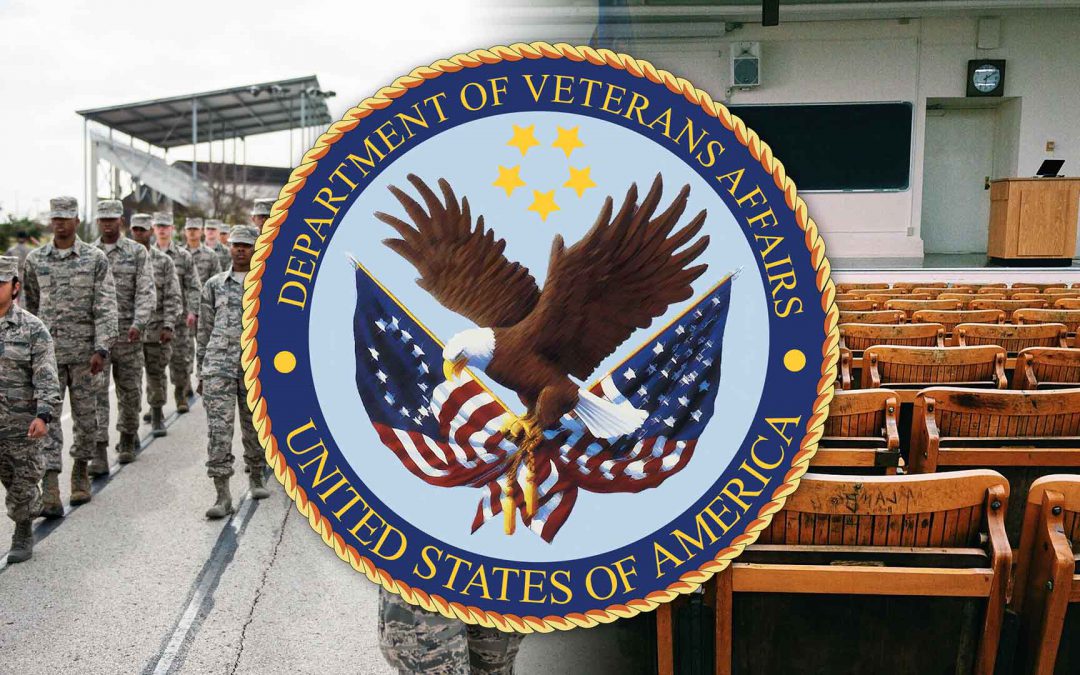WASHINGTON — Chelsea Russ’ search for an undergraduate college during her transition from serving as an electronics technician in the Navy to the reserves in 2016 included researching university websites, making long lists of options and visiting 20 schools. She had always dreamed of going to Cornell, but thought the Ivy League school was out of reach.
Russ realized her dream after she was connected to a mentor by Service to School, a nonprofit that connects veterans to top universities. The mentor helped her navigate the complex admission process and kept her motivated.
Now a Cornell undergraduate, Russ is one of the 950,000 veterans who used the GI Bill for their education in 2018. Out of that, only 582 veterans are in undergraduate programs at eight Ivy League schools, which together enroll more than 6,000 students on an average in their undergraduate class annually. That means veterans comprise less than 1 percent of the total undergraduate population in those eight schools, ranging from 12 at Princeton University to eight at Harvard in 2018.
The College Board, a nonprofit that administers standardized tests like the SAT, launched its new Search with the College Level Examination Program (CLEP) platform last week. Service members have the option to enroll in this search when registering for military-funded CLEP exams, which allow candidates to demonstrate their mastery of introductory college-level material and earn college credit. Colleges and veteran groups can use the platform to connect with service members and discuss available education options after the transition.
“Our goal is for every service member to be contacted by at least one school, and help them find the best school,” said Bruce Shahbaz, senior director of College Board’s Strategic Military Initiatives.
Shahbaz said that the College Board search program would facilitate collaborative planning between the schools and veterans, improving their chances of getting into a top-tier school and helping them make the most of the available education opportunities.
“Engineering schools will be able to talk with service members who are interested in engineering degrees without having to travel to 100 military bases and attend every college fair,” Shahbaz said.
He said veterans often underestimate the time it takes to complete the application for a competitive college, and schools say they don’t know how to find veterans who would be a good fit for their programs. Three years before they transition would be too soon, and six months is too late to provide a good match, he said.
The CLEP score is available to 20 institutions that can search the database by a veteran’s choice of college degree and the type of school they want to attend. Participants in the pilot search program range from two-year community colleges to Ivy League schools, and veteran support groups. Though the support from each institution might vary, the service will be provided free of charge.
“Every school in the pilot has a high graduation rate and has demonstrated a willingness to support veteran students,” Shahbaz said.
The Post 9/11 GI Bill and the Yellow Ribbon program cover most of the cost at the Ivy League schools. The GI Bill users at Ivy League colleges grew by nearly 34 percent in 2018, according to the Department of Veterans Affairs. But doubling the number of student veterans at Harvard University from four to eight students is “a negligible increase,” said Adam Behrendt, president of the Ivy League Veterans Council and a Navy veteran.
Sixty-two percent of veterans are first-generation college-goers who might not understand the application process or feel they are incapable of getting into elite institutions, according to experts.
“The CLEP search program gives schools the tools to reach this population,” said Behrendt, who will graduate from Stanford University this year as a math major.
Moreover, the military and the Ivy League share a fraught history. Princeton changed its transfer program in 2018 after 18 years, and Harvard and Yale approved the reintroduction of Reserves Officers Training Corps programs to their campuses in 2011 after banning them for several decades because of the Vietnam War and the “Don’t Ask, Don’t Tell” policy, which discriminated against gays and lesbians.
James Schmeling, executive vice president at Students for Veteran Affairs, said that many schools discriminated against veterans because of outdated stereotypes about those in service. “Many times, the perception was that you went to the military when you didn’t have options,” he said.
The recent recruitment of a vice-provost at Cornell points to the strides being made by the institution to enroll more veterans, Behrendt said. Most Ivy League schools “are doing nothing individually. They are offloading their recruiting to nonprofits like Service to School,” he said.
Russ, who is pursuing an environmental and sustainability science major at Cornell, said that an exceptional high school record is not necessary for admission into Ivy League schools, and experiences gained during service matter.
“It’s really helpful to have someone connect to you,” she said or her experience with Service to School. “Their help through the application process was invaluable.”


